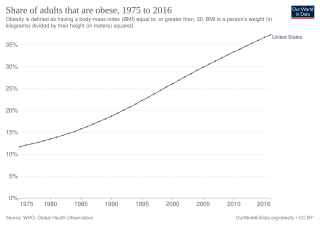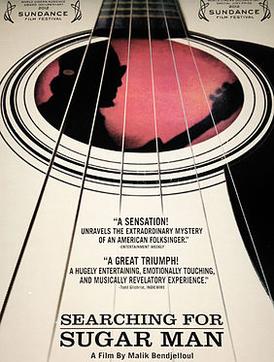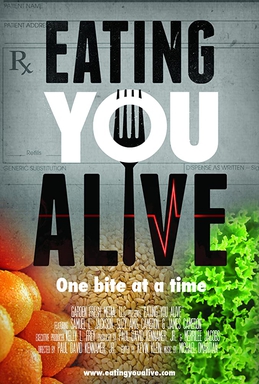
A soft drink is any water-based flavored drink, usually but not necessarily carbonated, and typically including added sweetener. Flavors used can be natural or artificial. The sweetener may be a sugar, high-fructose corn syrup, fruit juice, a sugar substitute, or some combination of these. Soft drinks may also contain caffeine, colorings, preservatives and other ingredients.

A sugar substitute is a food additive that provides a sweetness like that of sugar while containing significantly less food energy than sugar-based sweeteners, making it a zero-calorie or low-calorie sweetener. Artificial sweeteners may be derived through manufacturing of plant extracts or processed by chemical synthesis. Sugar substitute products are commercially available in various forms, such as small pills, powders, and packets.

"Junk food" is a term used to describe food that is high in calories from sugar and/or fat, and possibly sodium, making it hyperpalatable, but with little dietary fiber, protein, vitamins, minerals, or other important forms of nutritional value. It is also known as HFSS food. The term junk food is a pejorative dating back to the 1950s. Many different kinds of junk food can be easily found in most supermarkets and fast food restaurants. Because of such easy access to it, people are most likely to consume it.

Katherine Anne Couric is an American journalist and presenter. She is founder of Katie Couric Media, a multimedia news and production company. She also publishes a daily newsletter, Wake Up Call. From 2013 to 2017, she was Yahoo's Global News Anchor. Couric has been a television host at all of the Big Three television networks in the United States, and in her early career she was an assignment editor for CNN. She worked for NBC News from 1989 to 2006, CBS News from 2006 to 2011, and ABC News from 2011 to 2014. In 2021, she appeared as a guest host for the game show Jeopardy!, the first woman to host the flagship American version of the show in its history.

Low-carbohydrate diets restrict carbohydrate consumption relative to the average diet. Foods high in carbohydrates are limited, and replaced with foods containing a higher percentage of fat and protein, as well as low carbohydrate foods.

Obesity is common in the United States and is a major health issue associated with numerous diseases, specifically an increased risk of certain types of cancer, coronary artery disease, type 2 diabetes, stroke, and cardiovascular disease, as well as significant increases in early mortality and economic costs.

Obesity in the United Kingdom is a significant contemporary health concern, with authorities stating that it is one of the leading preventable causes of death. In February 2016, former Health Secretary Jeremy Hunt described rising rates of childhood obesity as a "national emergency". The National Childhood Measurement Programme, which measures obesity prevalence among school-age pupils in reception class and year 6, found obesity levels rocketed in both years groups by more than 4 percentage points between 2019–20 and 2020–21, the highest rise since the programme began. Among reception-aged children, those aged four and five, the rates of obesity rose from 9.9% in 2019–20 to 14.4% in 2020–21. By the time they are aged 10 or 11, more than a quarter are obese. In just 12 months, the rate is up from 21% in 2019–20 to 25.5% in 2020–21.

A sugary drink tax, soda tax, or sweetened beverage tax (SBT) is a tax or surcharge designed to reduce consumption of sweetened beverages. Drinks covered under a soda tax often include carbonated soft drinks, sports drinks and energy drinks. This policy intervention is an effort to decrease obesity and the health impacts related to being overweight, however the medical evidence supporting the benefits of a sugar tax on health is of very low certainty. The tax is a matter of public debate in many countries and beverage producers like Coca-Cola often oppose it. Advocates such as national medical associations and the World Health Organization promote the tax as an example of Pigovian taxation, aimed to discourage unhealthy diets and offset the growing economic costs of obesity.

Pacific island nations and associated states make up the top seven on a 2007 list of heaviest countries, and eight of the top ten. In all these cases, more than 70% of citizens aged 15 and over are obese. A mitigating argument is that the BMI measures used to appraise obesity in Caucasian bodies may need to be adjusted for appraising obesity in Polynesian bodies, which typically have larger bone and muscle mass than Caucasian bodies; however, this would not account for the drastically higher rates of cardiovascular disease and type 2 diabetes among these same islanders.

Robert H. Lustig is an American pediatric endocrinologist. He is Professor emeritus of Pediatrics in the Division of Endocrinology at the University of California, San Francisco (UCSF), where he specialized in neuroendocrinology and childhood obesity. He is also director of UCSF's WATCH program, and president and co-founder of the non-profit Institute for Responsible Nutrition.

Criticism of fast food includes claims of negative health effects, animal cruelty, cases of worker exploitation, children targeted marketing and claims of cultural degradation via shifts in people's eating patterns away from traditional foods. Fast food chains have come under fire from consumer groups, such as the Center for Science in the Public Interest, a longtime fast food critic over issues such as caloric content, trans fats and portion sizes. Social scientists have highlighted how the prominence of fast food narratives in popular urban legends suggests that modern consumers have an ambivalent relationship with fast food, particularly in relation to children.

Searching for Sugar Man is a 2012 documentary film about a South African cultural phenomenon, written and directed by Malik Bendjelloul, which details the efforts in the late 1990s of two Cape Town fans, Stephen "Sugar" Segerman and Craig Bartholomew Strydom, to find out whether the rumoured death of American musician Sixto Rodriguez was true and, if not, to discover what had become of him. Rodriguez's music, which had never achieved success in his home country of the United States, had become very popular in South Africa, although little was known about him there.

The Devil We Know is a 2018 investigative documentary film by director Stephanie Soechtig regarding allegations of health hazards from perfluorooctanoic acid, a key ingredient used in manufacturing Teflon, and DuPont's potential responsibility. PFAS are commonly found in every household, and in products as diverse as non-stick cookware, stain resistant furniture and carpets, wrinkle free and water repellant clothing, cosmetics, lubricants, paint, pizza boxes, popcorn bags, and many other everyday products.

Added sugars or free sugars are sugar carbohydrates added to food and beverages at some point before their consumption. These include added carbohydrates, and more broadly, sugars naturally present in honey, syrup, fruit juices and fruit juice concentrates. They can take multiple chemical forms, including sucrose, glucose (dextrose), and fructose.

A sweetened beverage is any beverage with added sugar. It has been described as "liquid candy". Consumption of sweetened beverages has been linked to weight gain, obesity, and associated health risks. According to the CDC, consumption of sweetened beverages is also associated with unhealthy behaviors like smoking, not getting enough sleep and exercise, and eating fast food often and not enough fruits regularly.

The 2014 Sundance Film Festival took place from January 16, 2014 until January 26, 2014 in Park City, Utah, United States, with screenings in Salt Lake City, Ogden, and Sundance Resort in Utah. The festival opened with Whiplash directed by Damien Chazelle and closed with musical drama Rudderless directed by William H. Macy.

Sugar is heavily marketed both by sugar producers and the producers of sugary drinks and foods. Apart from direct marketing methods such as messaging on packaging, television ads, advergames, and product placement in setting like blogs, industry has worked to steer coverage of sugar-related health information in popular media, including news media and social media.

Obesity in Thailand has been flagged as a major source of health concern, with 32% of the population identifying as overweight and 9% obese. With reference to 2016 data from the World Health Organization (WHO), Thailand has one of the highest incidence of overweight citizens in the South East Asian region, second to only Malaysia. The Thai National Health Examination Surveys (NHES) found that obesity in Thailand more than doubled during the period 1991-2014. This spike in obesity levels has been largely attributed to increased access to junk food, and unhealthy switches from active to sedentary lifestyles. These factors are closely linked to economic growth in the country.
Stephanie Soechtig is an American director and filmmaker who is known for documentaries such as Tapped (2009), Fed Up (2014), Under the Gun (2016) and The Devil We Know (2018).

Eating You Alive is a 2018 vegan health documentary film about why Americans are suffering from chronic diseases such as cardiovascular disease, diabetes, obesity, autoimmune disease, among other diseases, and whether the outcome can be changed.



















